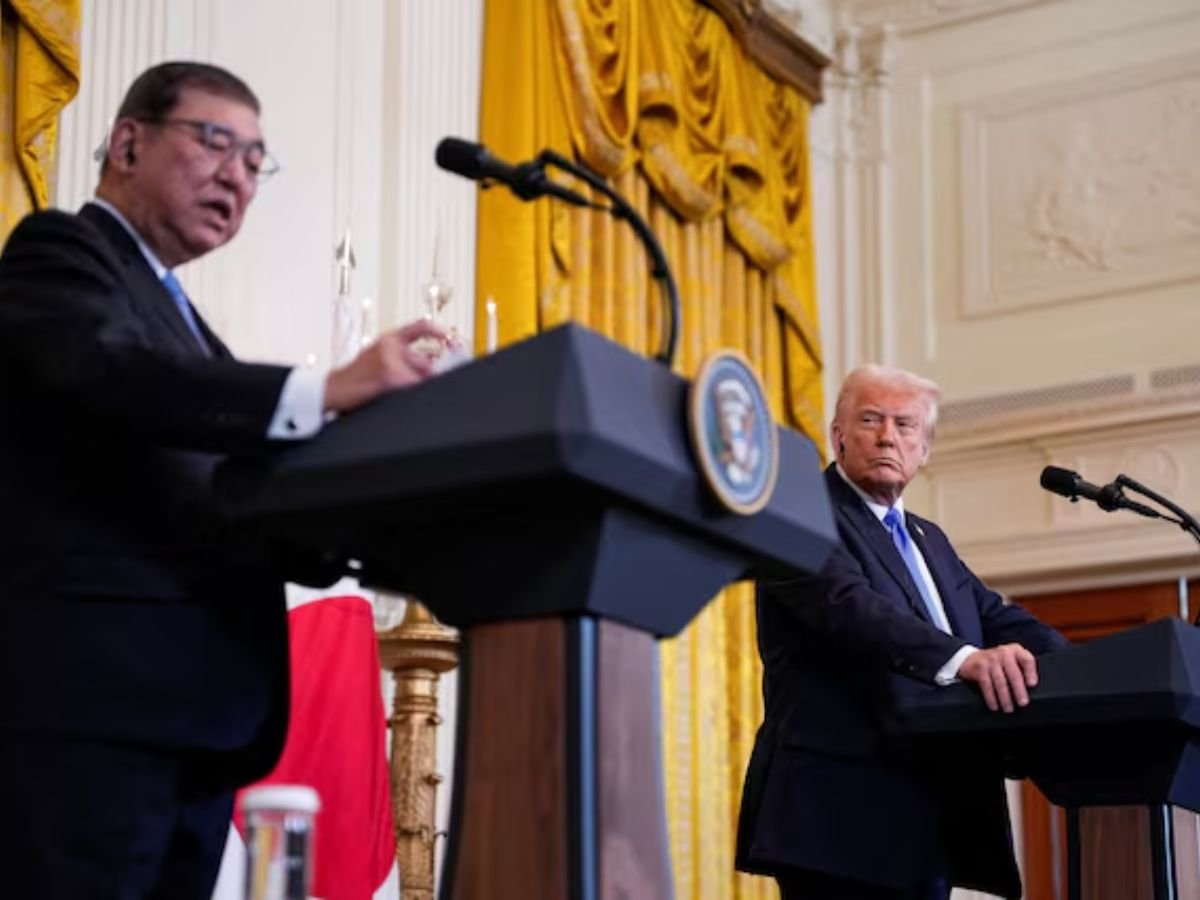Japanese Prime Minister Shigeru Ishiba is travelling to Canada ahead of the G7 summit to urge US President Donald Trump to remove tariffs on Japanese cars. The tariffs have caused significant economic strain on Japan's auto industry and threaten to weaken Ishiba's political support. Analysts have warned that continued tariffs could slow Japan's economic growth, potentially affecting the upcoming Japanese elections.

Japanese Prime Minister Shigeru Ishiba is travelling to Canada this Sunday to meet US President Donald Trump for crucial trade discussions, seeking to persuade the president to lift tariffs that have been detrimental to Japan’s auto industry and could further destabilise his government, Reuters reported.
The two leaders are expected to meet on the sidelines of the Group of Seven (G7) summit in Kananaskis, Alberta, marking their second in-person encounter. This meeting follows a sixth round of high-level trade talks held in Washington on Friday and comes as both countries face growing tensions over trade policies.
Ishiba’s primary objective is to secure a resolution that would see Trump remove the 25% tariff on Japanese cars, a move that has deeply impacted Japan’s auto manufacturers. Additionally, the US has imposed a 24% across-the-board tariff, which Trump refers to as a “reciprocal tariff,” further complicating the trade relationship.
Japan’s top tariff negotiator, Ryosei Akazawa, told the agency that detailed discussions with US Treasury Secretary Scott Bessent and Commerce Secretary Howard Lutnick were held to explore potential solutions, but Ishiba faces a delicate challenge in balancing the needs of the auto industry with maintaining his domestic political support.
“Ishiba’s main challenge is to convince Trump to drop the tariffs without conceding terms that could hurt his domestic standing,” Reuters quoted political science professor Michael Cucek from Temple University in Tokyo, as saying.
The timing of Ishiba’s trade talks is crucial, as his government faces mounting pressure ahead of Japan’s upper house elections next month. After a significant loss in the lower house election in November, Ishiba’s government now relies on the support of smaller parties to maintain power. Analysts quoted by the publication warned that a failure to reach a favourable deal with Trump could harm Ishiba’s political future.
“If it goes badly, it could even be seen as a positive for Ishiba, standing up to Trump and standing up for his country when he’s under assault,” Cucek added, per Reuters.
Ishiba is also facing the challenge of managing public perception. Any significant concessions could undermine his support base, especially as Japan’s auto industry has voiced concerns about the economic impact of prolonged tariffs.
While a lack of resolution at the G7 summit may not result in an immediate economic crisis for Japan, economists cited by Reuters warn that tariffs will slowly erode the country’s economic growth.
Asuka Tatebayashi, a senior analyst at Mizuho Bank, pointed out that recent data for April shows a decline in the dollar value of Japan’s car exports to the US despite an increase in the number of cars shipped. “This means either they are only selling cheap cars or the manufacturers are absorbing the cost. I think the latter is the case, and this is not very sustainable,” Tatebayashi reportedly said.
In a report released in April, Mizuho Research & Technologies estimated that the tariffs could eventually shave off 0.9% of Japan’s gross domestic product.